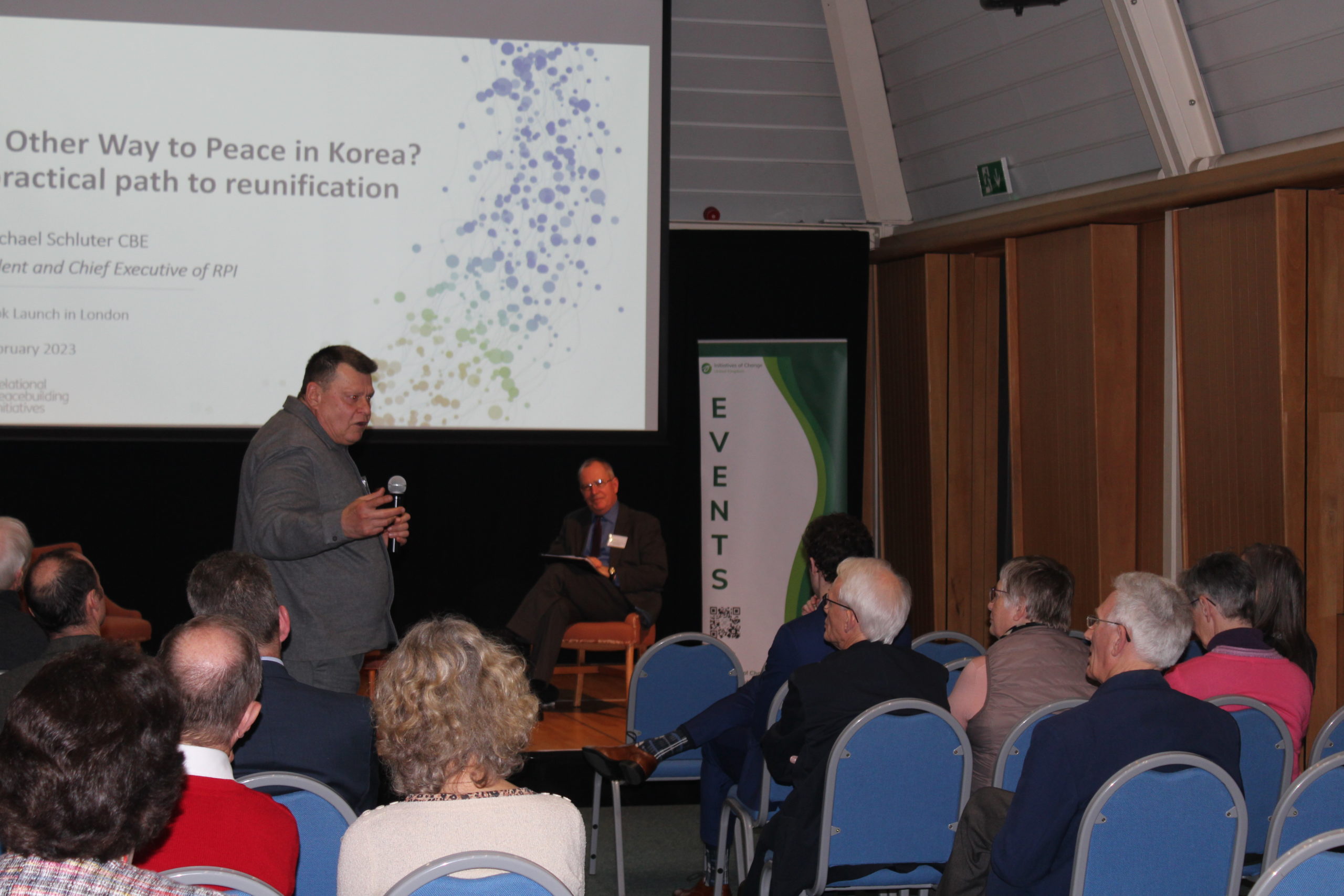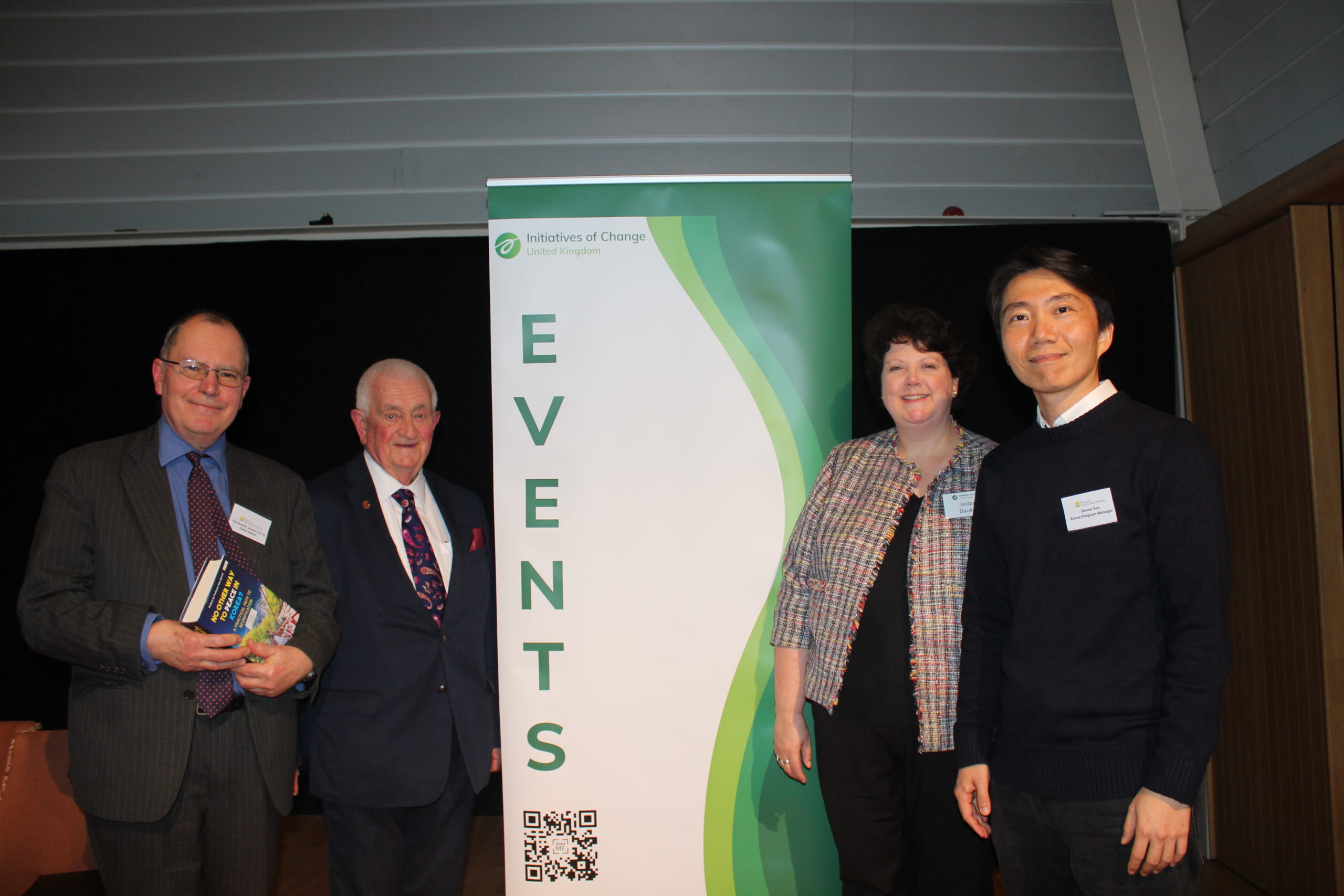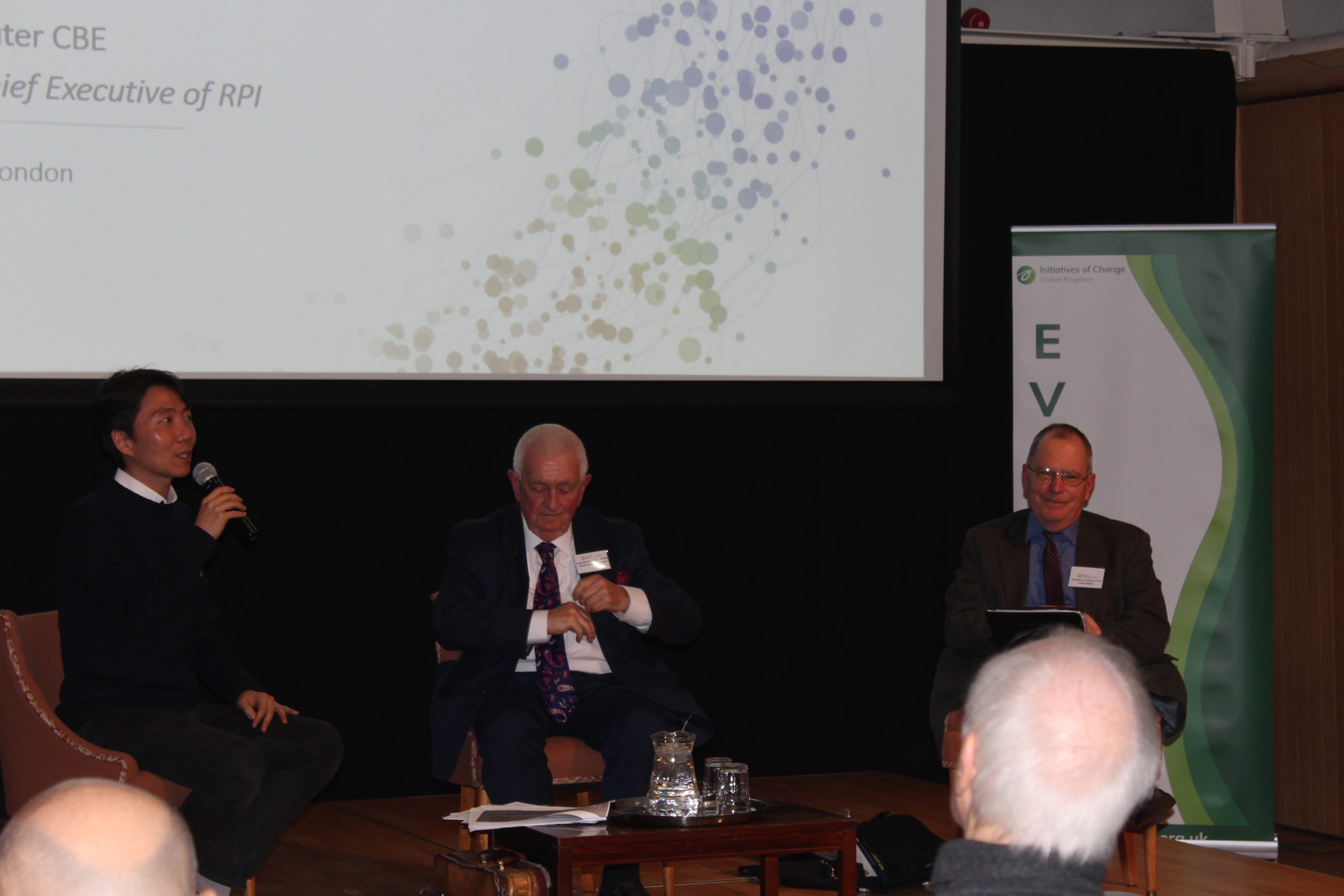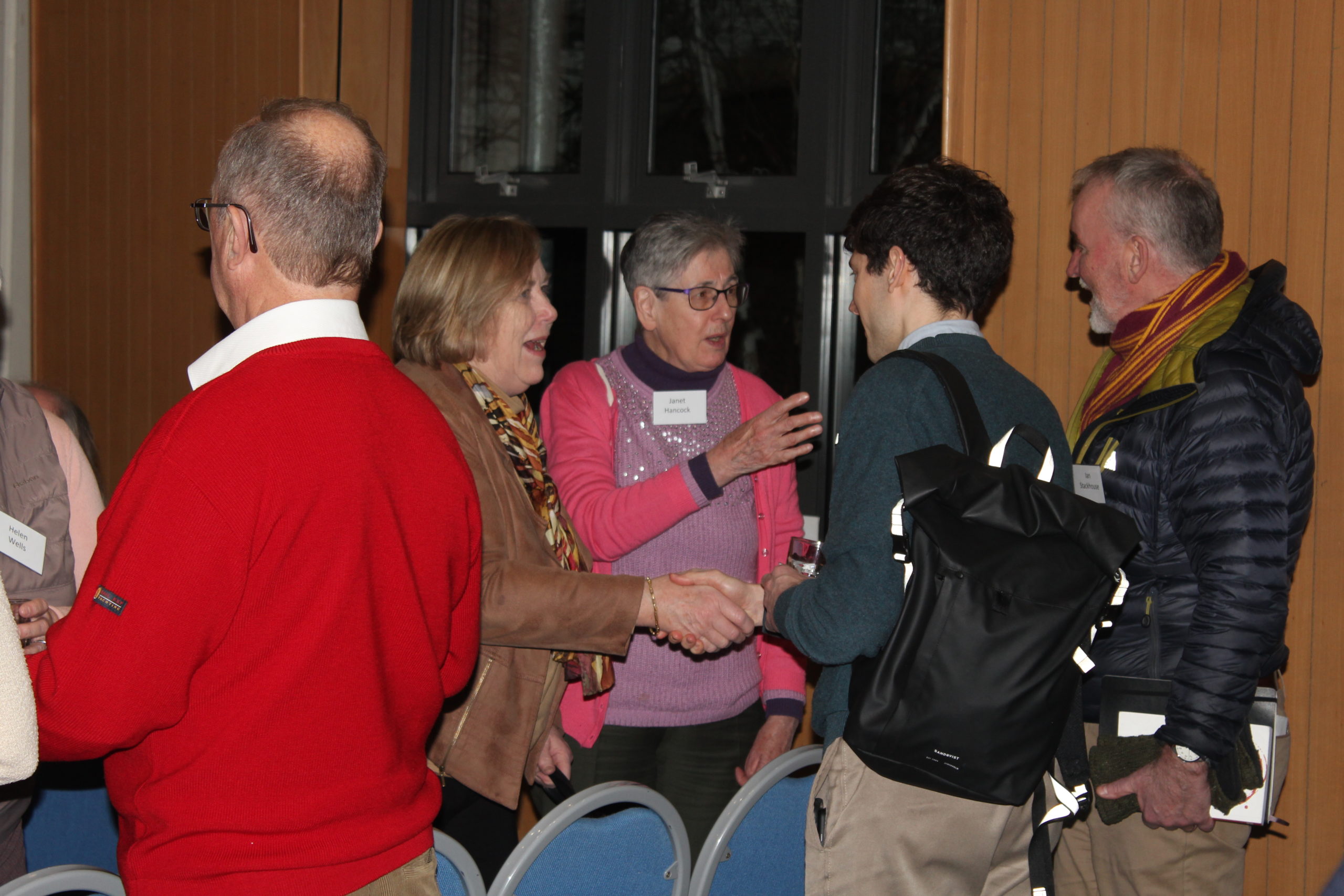By Jacqui Daukes
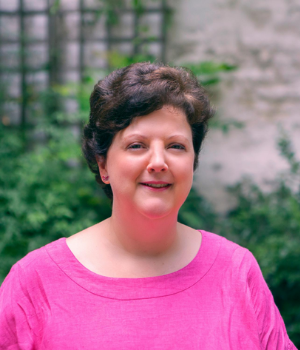
Jacqui Daukes
On Thursday 23 February, Initiatives of Change UK, along with Relational Peacebuilding Initiatives, hosted the launch of Michael Schluter’s new book ‘No Other Way to Peace in Korea? A Practical Path to Reunification’ at Greencoat Place.
An audience of diplomats, scientists, peacebuilders, clergy, academics, musicians, authors, and activists gathered at IofC UK offices in London to hear from Professor Alan Burrell (Chair, Relational Peacebuilding Initiatives), Dr Jeremy Ive (Senior Advisor) and Steven Seo (Korea Programme Manager). as, sadly, Dr Schluter was unwell and unable to be present.
At the launch, a presentation was given outlining the thesis of the book, highlighting that “trade not aid” is one means of building peace on the Korean peninsula. Trade would preserve the dignity of north Koreans, offer an opportunity for economic modernization, and allow re-entry into the international community. For South Koreans, trade would provide long-term economic benefits, reduce the nuclear threat, and increase political stability.
Schluter posits a viable alternative to socialism and capitalism – ‘fraternité—relationality—and outlines various steps, beginning with the creation of a Korean Peninsula Agricultural Community (KPAC) and ending with Korea as a neutral, multi-connected Federation of Provinces. The audience was able to hear Schluter express his ideas by watching a clip of his interview on Arirang television network.
Diplomat at the British embassy in Pyeongyang, Philip Kendall, questioned Schluter’s premise that the denuclearisation of North Korea (DPRK) is only possible when the Korean Peninsula is reunified rather than as a prerequisite for negotiations as being a sticking point for some international actors.
David Locke, a member of the IofC network, commented afterward that it was “…a very interesting evening” and…they certainly have visionary ideas. Whether they can be fulfilled is difficult to know but great to have an alternative plan to solve the present impasse between North Korea and the west”.
Jacqui Daukes, who facilitated the event, said “IofC’s values-based approach to building trust across the world’s divides—empowering people to create personal change leading to global change—and Relational Peacebuilding Initiatives’ relational peacebuilding methodology aligns. I thought that by hosting this event we could inspire, equip and connect people to consider new ways forward to building peace.” Professor Alan Burrell from RPI expressed much of the same sentiment, saying “The purpose and ethos of all you do at Initiatives of Change is much in line with RPI.”
IofC UK is happy to be back and hosting again regularly after the pandemic. Steven Seo from RPI commented that he was “so impressed by the hospitality as well as the quality of the facilities.” A wonderful evening to kick of the launch of a great book.
For more information about the book ‘No Other Way to Peace in Korea? A Practical Path to Reunification’ follow the link HERE.
Jacqui Daukes is the Partnering Manager at IofC UK.
